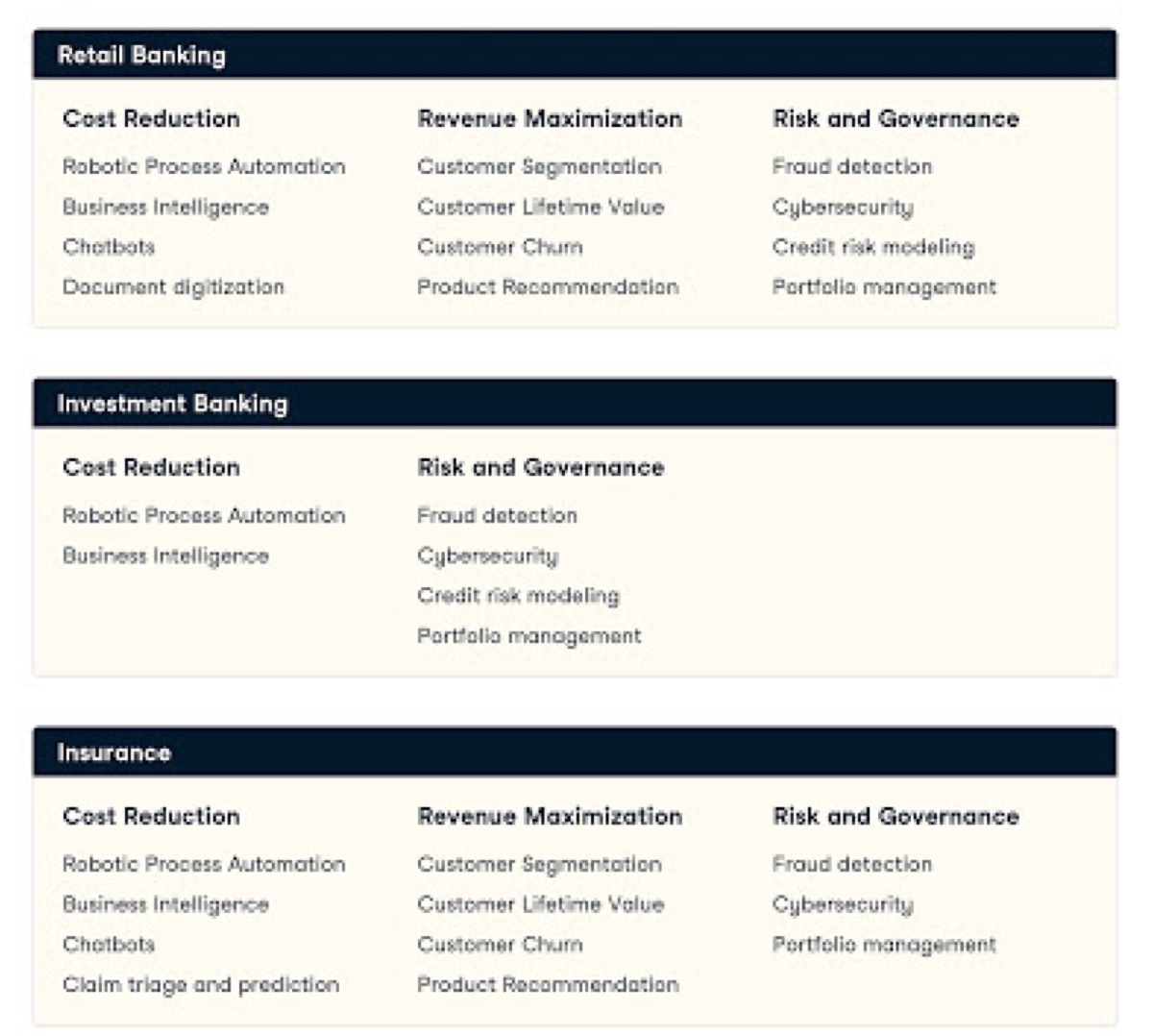13 Use Cases for Data-Driven Digital Transformation in Finance
Financial institutions can seamlessly integrate digital technologies with data-driven insights.
Updated Nov 2020 · 4 min read
Topics
RelatedSee MoreSee More
Data Competency Framework: Templates and Key Skills
Discover how to build an effective data competency framework, the data and AI skills you need to include, and templates to help you get started.
Adel Nehme
8 min
Digital Upskilling Strategies for Transformative Success
Explore the power of digital upskilling in achieving transformative success and bridging the skills gap for a future-ready workforce.
Adel Nehme
7 min
What is Data Fluency? A Complete Guide With Resources
Discover what data fluency is and why it matters. Plus find resources and tips for boosting data fluency at an individual and organizational level.
Matt Crabtree
8 min
Becoming Remarkable with Guy Kawasaki, Author and Chief Evangelist at Canva
Richie and Guy explore the concept of being remarkable, growth, grit and grace, the importance of experiential learning, imposter syndrome, finding your passion, how to network and find remarkable people, measuring success through benevolent impact and much more.
Richie Cotton
55 min
How Data Leaders Can Make Data Governance a Priority with Saurabh Gupta, Chief Strategy & Revenue Officer at The Modern Data Company
Adel and Saurabh explore the importance of data quality and how ‘shifting left’ can improve data quality practices, operationalizing ‘shift left’ strategies through collaboration and data governance, future trends in data quality and governance, and more.
Adel Nehme
41 min
[Radar Recap] The Art of Data Storytelling: Driving Impact with Analytics with Brent Dykes, Lea Pica and Andy Cotgreave
Brent, Lea and Andy shed light on the art of blending analytics with storytelling, a key to making data-driven insights both understandable and influential within any organization.
Richie Cotton
40 min

